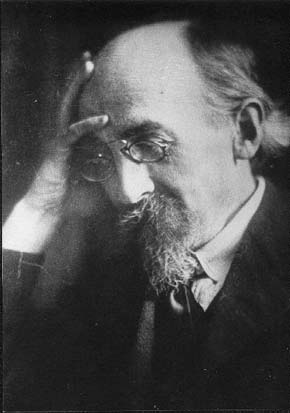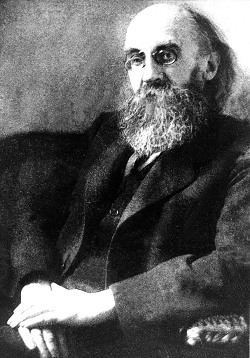<Back to Index>
- Mathematician Rudolf Otto Sigismund Lipschitz, 1832
- Composer Otto Klemperer, 1885
- Minister President of Bavaria Kurt Eisner, 1867
PAGE SPONSOR


Kurt Eisner (14 May 1867 in Berlin – 21 February 1919 in Munich) was a Bavarian politician and journalist. As a German socialist journalist and statesman, he organized the Socialist Revolution that overthrew the Wittelsbach monarchy in Bavaria in November 1918. He is used as an example of charismatic authority by Max Weber.
Kurt Eisner was born in Berlin at 10:15 p.m. on 14 May 1867 to Emanuel Eisner and Hedwig Levenstein, both Jewish. He was married to painter Elisabeth Hendrich from 1892, with whom he had five children, but they eventually divorced in 1917 and Eisner then married Elise Belli, an editor. With her, he had two daughters.
Eisner studied philosophy, but then became a journalist in Marburg. Eisner was always an open Republican as well as a Social Democrat, joining the SPD in 1898, whereas for tactical reasons German Social Democracy, particularly in its later stages, rather cold shouldered anything in the shape of Republican propaganda as being unnecessary and included in general Social Democratic aims. Consequently he fought actively for political democracy as well as Social Democracy. He became editor of Vorwärts after the death of Wilhelm Liebknecht in 1900, but was subsequently called upon to resign from that position. After his withdrawal from Vorwärts, his activities were confined in the main to Bavaria, though he toured other parts of Germany. He was chief editor for the Fränkische Tagespost in Nueremberg from 1907 to 1910 and afterwards became a freelance journalist in Munich.
He joined the Independent Social Democratic Party of Germany in 1917, at the height of World War I, and was convicted of treason in 1918 for his role in inciting a strike of munitions workers. He spent 9 months in Cell 70 of Stadelheim Prison, after which he was released during the General Amnesty in October of that year.
After his
release from prison, he organized the revolution that overthrew the monarchy
in
Bavaria (German
Revolution). He declared Bavaria to be a free
state and republic on 8 November 1918,
becoming the first republican premier
of
Bavaria. Due to
the inability of the new government to provide basic services as a
result of the Treaty
of
Versailles as
well as the antisemetic Stab-in-the-back
legend originating in Austria,
Eisner's
Independent Social Democrats were narrowly defeated in the
January 1919 election by the Bavarian
People's
Party. He was assassinated in Munich when German nationalist Anton
Graf
von Arco auf Valley shot
Eisner
in the back on 21 February 1919. Eisner was on his way to
present his resignation to the Bavarian
parliament. His
assassination resulted in the establishment of the Bavarian
Soviet
Republic and parliament and government fleeing Munich. In 1989 a
monument at the site of his assassination was built. It reads, "Kurt
Eisner, der am 8. November 1918 die Bayerische Republik ausrief,
nachmaliger Ministerpräsident des Volksstaates Bayern, wurde an
dieser Stelle am 21. Februar 1919 ermordet." ("Kurt Eisner, who
proclaimed the Bavarian republic on 8 November 1918 -- later Prime
Minister of the Republic of Bavaria -- was murdered here on 21 February
1919.")